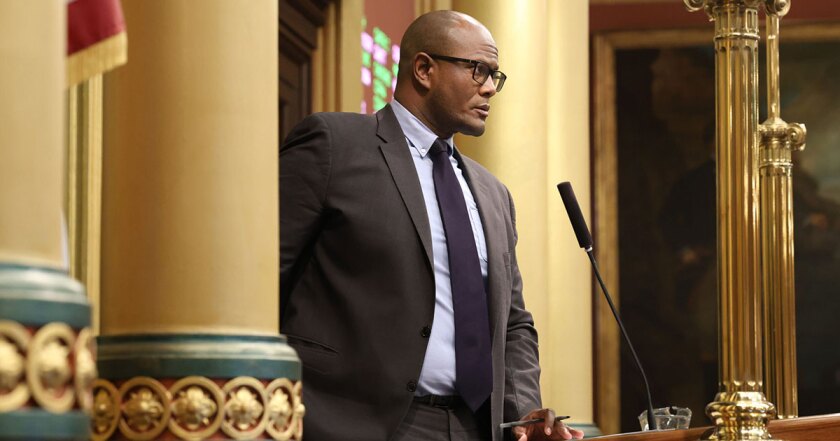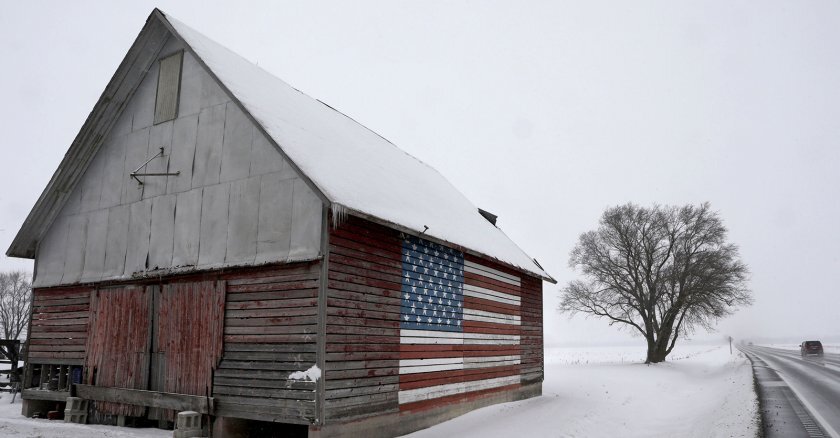That op-ed came after Jones embarked last fall with a Black Democratic state senator on a tour of Georgia HBCUs. Jones says he supports a bill co-authored by the senator, Sonya Halpern, titled the HBCU Innovation and Economic Prosperity Planning Districts Act. He also wants the state to appropriate $1.1 million to Black colleges for a feasibility study for a veterinary school at Fort Valley State University and broadband deployment for Atlanta University Center colleges. But such a commitment amounts to only a drop in the barrel considering the billions of dollars the federal government says Georgia and other states underfunded their HBCUs over two decades.
Jones’ talk of support for Black colleges, however genuine or superficial it may be, makes the wealthy former state senator and Georgia Bulldogs football captain somewhat of an enigma. But it may signal a strategic effort by Republicans to peel off at least a tiny slice of Black voters — perhaps not enough to win them over permanently from the Democrats but enough to win this year’s state primaries in close races and flip Georgia in the upcoming presidential election. It could be a new play in the MAGA playbook that could make a difference in battleground states, especially those with significant minority populations.
Jones is an odd choice to advance a strategy that requires at least the illusion of bipartisan cooperation. He was one of 16 Georgia Republicans who acted as “fake electors” for Donald Trump following the 2020 presidential voting, and he still is an election denier to whom Fulton County District Attorney Fani Willis sent a letter informing him that he was a target of her investigation into Trump’s efforts to overturn the election.
Although many have called for Jones to have been indicted along with Trump and 18 of his other allies, he has avoided it so far because a judge ruled that Willis’ sponsorship of a fundraiser for Jones’ Democratic opponent in the 2022 election for lieutenant governor created a conflict. No prosecutor has been assigned to pursue a case against Jones despite his admitting that he met with then-Vice President Mike Pence on the eve of the Jan. 6, 2021, Capitol insurrection and intended to give him a letter signed by 16 Georgia legislators urging Pence to put off congressional certification of the electoral college vote for 12 days “to allow for further investigation of fraud, irregularities and misconduct” in Georgia’s election.
Because of Jones’ involvement in efforts to overturn the election and his backing of racially insensitive initiatives, some African American legislators I’ve spoken to seem genuinely perplexed over his overtures toward them and his talk about the importance of historically Black colleges. Others say that since Democrats are a minority in the Legislature they should welcome support from him and other Republicans regardless of their ideologies and overall policy positions. Then there are those who believe, as Maya Angelou once said, that “when someone shows you who they are, believe them the first time” — that his election denial and overall legislative agenda show that he is no friend to the Black Georgians who comprise about a third of the state’s population.
Public officials and voters will continue to debate whether politicians like Jones are for real, but national election data does show a small rise (in the neighborhood of 2 to 4 percentage points) between 2016 and 2020 in Blacks’ and other minorities’ support for Trump, and there are strong indications that that growth has continued since then. The data also documents that the slippage has been mostly among non-college-educated minorities. To make matters worse, cultural icons from the hip-hop community, including such influencers as Lil Wayne, DaBaby, Kodak Black, Chief Keef, Benny the Butcher and Waka Flocka Flame, are flocking to Trump. His support among these Black entertainers is increasing despite the fact that Trump often uses racially inflammatory rhetoric and recently invited a storm of negative criticism when he suggested that Blacks identify with him more today because they see him as another victim of discrimination by the U.S. legal system.
As for the important question of whether Democratic state legislators and other public officials should work with conservative Republicans when their interests intersect, as with the HBCU initiatives, my answer is yes, they should. The real issue to me is not what conservative Republicans gain from associating with issues of interest to African American legislators. It is what the beneficiaries gain and what strings are attached. To not work with members of the opposition party would mean that until Black and other minority legislators gain the majority, they will not be able to get much done for their constituencies.
There are positive examples of Black-white and bipartisan partnerships occurring in other states. For example, last year North Carolina, on a bipartisan basis, expanded Medicaid coverage to 600,000 new beneficiaries. The Bipartisan Policy Center reported that 140 bipartisan bills dealing with child welfare were introduced in legislatures in the 2022 and 2023 sessions.
Throughout the country, and certainly in battleground states like Georgia where partisan and racial divides make statewide races competitive, it is going to be tiny shifts that Republicans like Jones seek that might make the difference between victory and defeat. Black and other minority legislators should focus on doing the same. This may mean that they should lean more heavily into populist messages relating to jobs and the economy to win over a larger slice of the non-college-educated Black and white voters that both parties want to appeal to. This type of strategic thinking could lead to new alliances and better policies for everyone.
Governing’s opinion columns reflect the views of their authors and not necessarily those of Governing’s editors or management.













